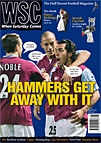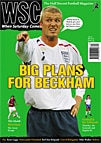 Bohemians of Prague return to the top flight. Frantisek Bouc reports
Bohemians of Prague return to the top flight. Frantisek Bouc reports
In mid June, the Czech Republic’s football community had a few significant issues to deal with. National coach Karel Bruckner came under pressure after his team’s mediocre Euro 2008 form continued with a goalless draw in Wales; rumour had it that former German international Lothar Matthäus could soon take over. At the same time, the Czech Under-21 team was taking part in the European Championship in the Netherlands, where they didn’t get past the group stage. However, this was all overshadowed by the return to the top division, the Gambrinus Liga, of one of the country’s most popular clubs, Bohemians of Prague.
